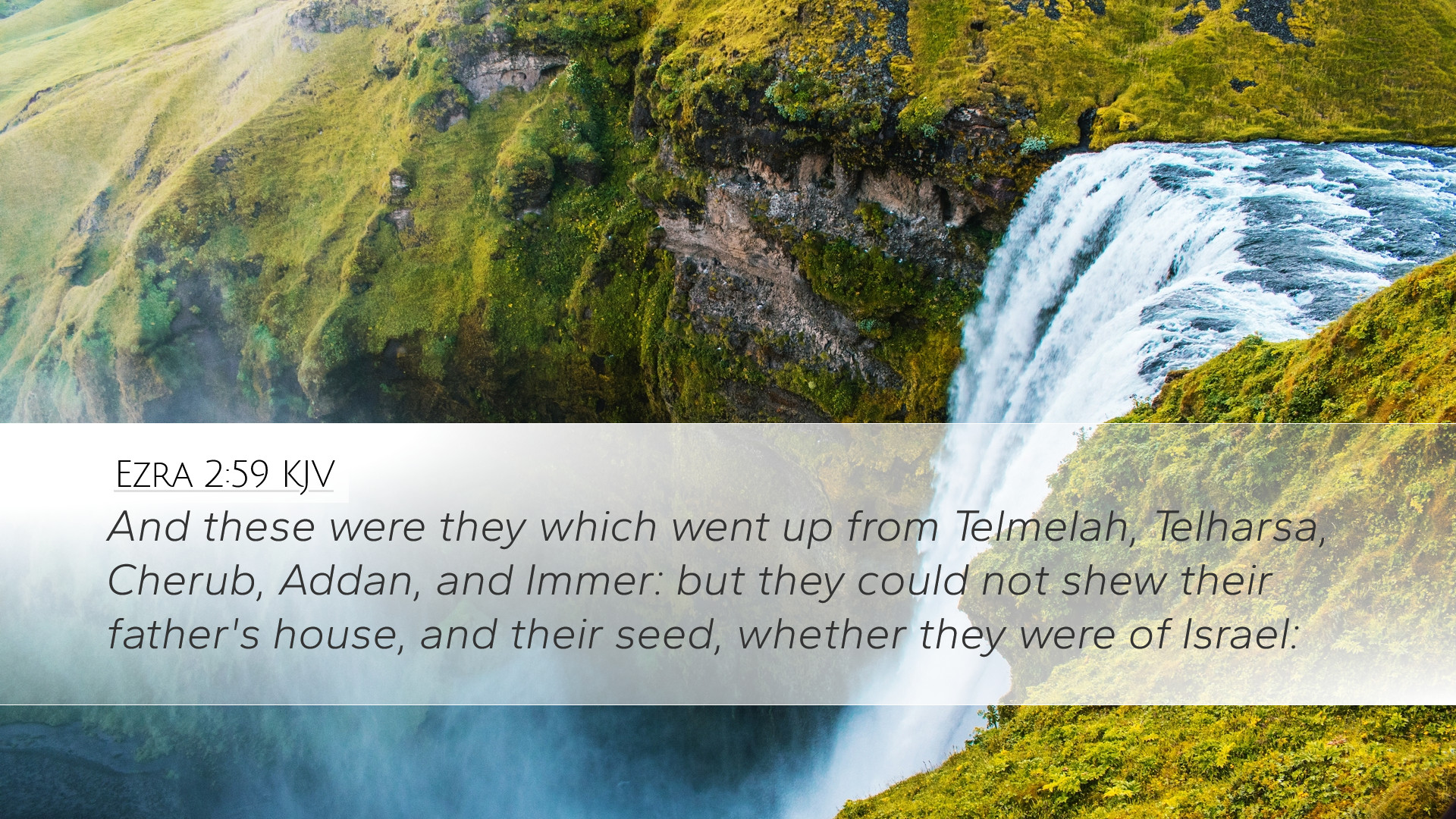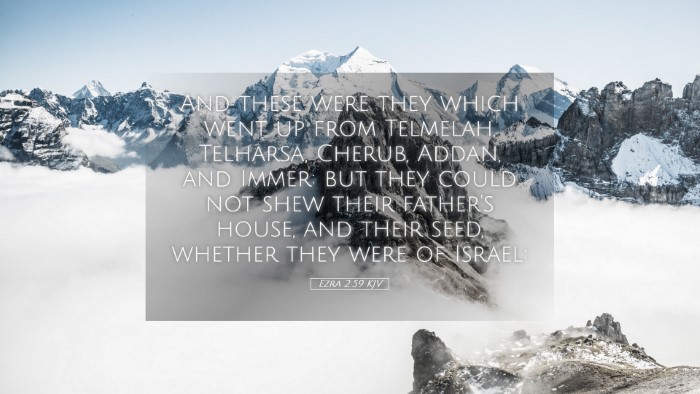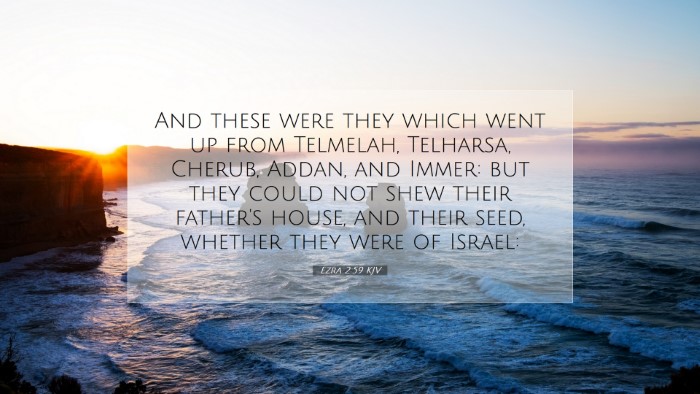Commentary on Ezra 2:59
Ezra 2:59 states: "And these were they which went up from Telmelah, Telharsa, Cherub, Addan, and Immer: but they could not shew their father's house, and their seed, whether they were of Israel." This verse highlights the challenges faced by the returning exiles as they attempt to re-establish their identity and genealogy in the wake of Babylonian captivity. Below is a careful exploration and commentary on this significant verse.
Historical Context
To appreciate this verse's nuances, one must consider the historical backdrop of the Israelites' return from Babylon. Matthew Henry notes that these returnees represent a remnant of the Jewish people, invoking a sense of continuity and heritage despite their challenging circumstances.
The Importance of Genealogy
In ancient Israel, genealogy was of paramount importance. It connected individuals to their tribal identities and played a significant role in the allocation of land and priestly duties. Adam Clarke emphasizes that the inability of the individuals from Telmelah, Telharsa, Cherub, Addan, and Immer to prove their descent highlights a crisis of identity within these groups, potentially severing their right to inherit ancestral lands.
Analysis of Key Terms
Telmelah, Telharsa, Cherub, Addan, and Immer
Each of these locations evokes different interpretations and historical significances. Albert Barnes mentions these places mostly as points of departure for those returning, though the exact geographical locations are often debated. Their names, however, symbolize the mixed heritage and mingling of peoples during the exile.
“Could Not Show Their Father’s House”
The phrase “could not shew their father’s house” conveys a sense of loss and disconnection. Henry asserts that this inability to establish their lineage reflects the trauma of exile. It signifies that their identity had been compromised through generations spent outside their homeland. This sentiment resonates with many today who struggle with demarcations of heritage amidst displacement or diaspora.
“Whether They Were of Israel”
The distinction of being acknowledged as part of Israel is a profound matter for these individuals. Clarke comments on the existential challenge of returning to a community while lacking clear credentials of their roots. This call for validation not only emphasizes a physical return but also an essential spiritual and communal restoration.
Theological Implications
The Sovereignty of God
This verse serves as a profound reminder of God's sovereignty over history, as noted by Barnes. Even amidst uncertainty, God remains faithful to His covenant people. The challenges faced by those who could not prove their lineage serve as a backdrop to the assurance that God will restore and uphold His promises.
Identity and Community
Moreover, this passage prompts reflection on the nature of identity within the faith community. The inability to define lineage forces a consideration of the community's inclusivity. Henry posits that true identity transcends biological lineage, suggesting that inclusion in God’s community is determined by faith and adherence to His principles rather than mere historical ties.
Spiritual Lessons for Today
- Embracing Spiritual Heritage: Just as the returnees struggled with their identities, modern believers are often challenged with their spiritual heritage amid contemporary societal influences. This verse invites reflection on what it means to be part of God’s family today.
- Grace and Restoration: The narrative emphasizes that although there may be obstacles related to one's past, God's grace and the potential for restoration are always available. Pastors can encourage congregations by highlighting that God's acceptance is unconditional even when human documents may be lacking.
- Community and Identity: The verse reminds us of the necessity to foster a communal identity where every member, regardless of their past lineage or inability to present their heritage, is embraced and valued. This notion could lead to transformative discussions within the church on how inclusivity should manifest in lived faith.
Conclusion
In summary, Ezra 2:59 provides profound insights into identity, heritage, and community within the larger narrative of post-exilic restoration. The commentaries by Henry, Barnes, and Clarke collectively emphasize that while genealogy is important, one's relationship with God and participation in His community are ultimately what define belonging. For modern pastors, theologians, and students, this verse acts as a clarion call to reflect on the core of their faith journey, the assurance of God’s sovereignty, and the inclusivity of the Christian community.


